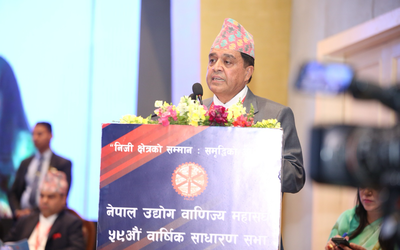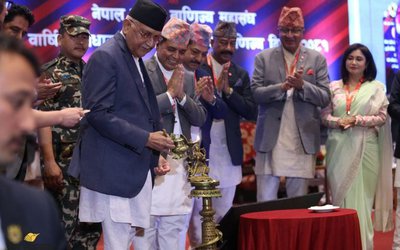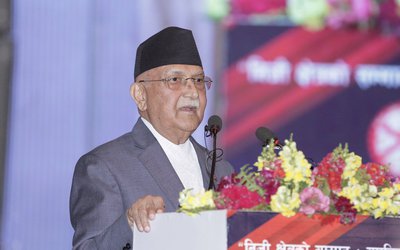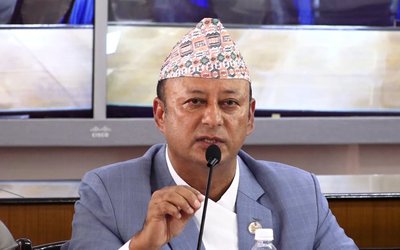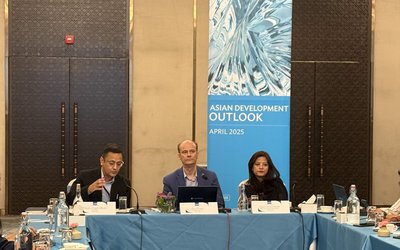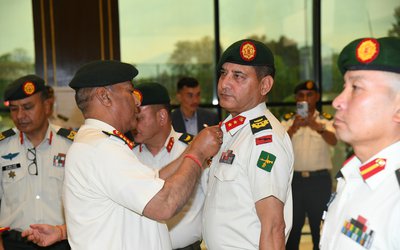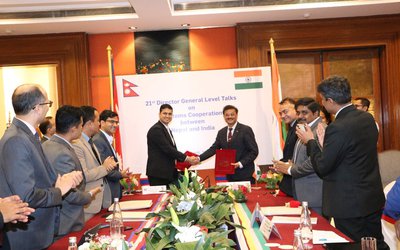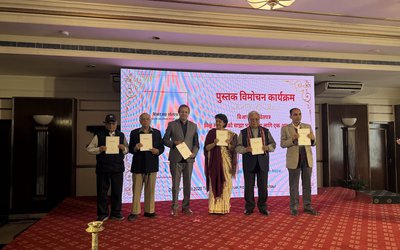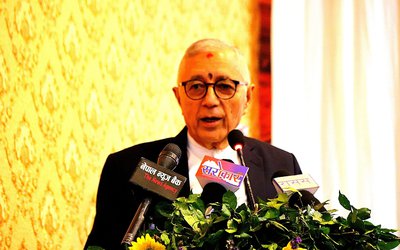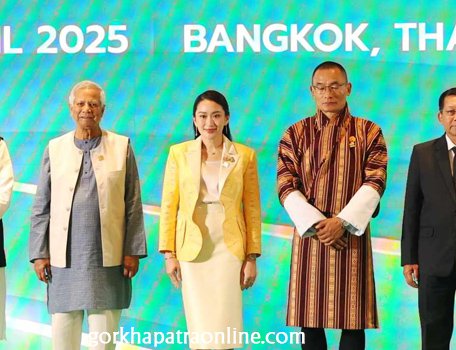
Prime Minister K.P. Sharma Oli addressed the Sixth Summit of the Bay of Bengal Initiative for Multi-Sectoral Technical and Economic Cooperation (BIMSTEC) in Bangkok.
In his address, the Prime Minister reaffirmed Nepal’s commitment to the BIMSTEC Charter and highlighted the multifaceted regional and global challenges, including climate change, economic disparities, and geopolitical uncertainties. He stressed the importance of deeper regional collaboration to address these challenges.
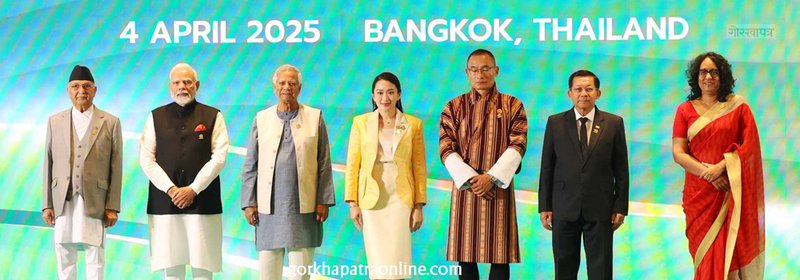
“The global order is being redefined. At this defining moment, BIMSTEC must not only navigate the changing tides but also seize the opportunity to reinvigorate our regional cooperation,” he said.
Focusing on the summit theme, “Prosperous, Resilient, and Open BIMSTEC,” he emphasized that these three pillars align with the Sustainable Development Goals and resonate deeply with Nepal’s national vision of "Prosperous Nepal, Happy Nepali."
Acknowledging the critical role of the Himalayas as global heat sinks and the existential threats posed by the climate crisis, the Prime Minister invited BIMSTEC leaders to attend the inaugural "Sagarmatha Sambaad" in Kathmandu next month and contribute to its success.
The summit adopted the BIMSTEC Bangkok Vision 2030, the Eminent Persons' Group (EPG) Report, Rules of Procedures for BIMSTEC Mechanisms, and a Joint Statement on the impact of the earthquake in Myanmar and Thailand, as well as the Summit Declaration. The Chairmanship of BIMSTEC was handed over to Bangladesh.
In his address, PM Oli also shed light on various pressing regional and global concerns, such as economic inequality, rising economic risks, and political uncertainty. To address these challenges, he underscored the need for enhanced regional cooperation. The slogan of the BIMSTEC summit reflected Nepal’s national ambition of "Prosperous Nepal, Happy Nepali," he shared.
PM Oli further shared that he also invited the BIMSTEC member countries' Heads for the participation in first edition of Sagarmatha Sambaad going to be organized by Nepal in order to hold a discussion on the environment and other regional and international challenges.
In his address to the Summit, he mentioned that climate change has posed an existential threat to entire humanity.
He viewed that the Bangkok Declaration incorporated the issues—of implementing BIMSTEC Vision 2030 for the development, prosperity and sustainability of the BIMSTEC region, utilizing opportunities of economic growth regionally.
Ahead of the Summit, the BIMSTEC ministry-level meeting emphasized the need to approve an action plan focused on human resource development, public health, education, science and technology, and climate change. The meeting also called for swift implementation of these initiatives.
During the BIMSTEC Summit, Prime Minister K.P. Sharma Oli held meetings with Indian Prime Minister Narendra Modi, Sri Lankan Prime Minister Dr. Harini Amarasuriya, Bhutanese Prime Minister Tshering Tobgay, and Myanmar’s Prime Minister Min Aung Hlaing.
PM Oli, leading a Nepali delegation, arrived in Thailand on April 1 for an official visit at the invitation of Thai Prime Minister Paetongtarn Shinawatra. The visit was also to attend the Sixth BIMSTEC Summit.
As part of his official engagements, PM Oli held bilateral meetings with Dr. Harini Amarasuriya, Prime Minister of Sri Lanka; Senior General Min Aung Hlaing, Chairman of the State Administration Council and Prime Minister of Myanmar; and Dasho Tshering Tobgay, Prime Minister of Bhutan.
During these meetings, the leaders reviewed various aspects of their bilateral relations, characterized by cordial friendships, mutual trust, and growing people-to-people connections. They all stressed the importance of deepening cooperation for mutual benefits, both bilaterally and multilaterally, particularly within the framework of BIMSTEC.
The Prime Minister was accompanied by his spouse, Mrs. Radhika Shakya, Dr. Arzu Rana Deuba, Minister for Foreign Affairs, Bishnu Prasad Rimal, Chief Advisor to the Prime Minister, Dr. Yuba Raj Khatiwada, Economic and Development Advisor to the Prime Minister, as well as high-ranking government officials and representatives from the private sector.
- IME GROUP: Expands Into Paper Industry
- Mar 24, 2025
- CPN UML: Instigated By India
- Mar 23, 2025
- ADB’S CHIEF ECONOMIST: Nepal Reduces Poverty
- Mar 11, 2025
- FM DR. DEUBA: A Successful Visit
- Mar 11, 2025
- MD GHISING: Target Of Personal Grudge
- Mar 09, 2025
